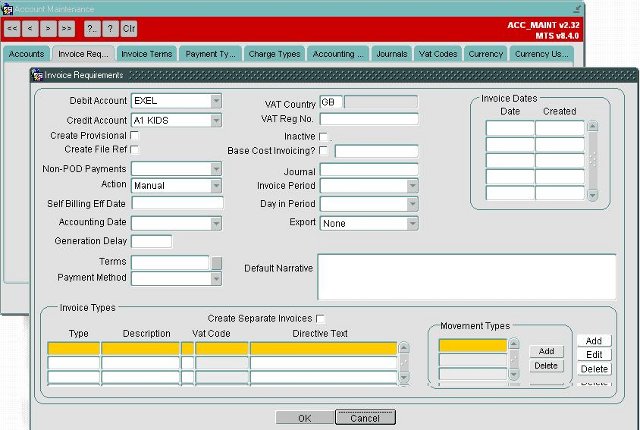Invoices: Difference between revisions
No edit summary |
m (test) |
||
| Line 33: | Line 33: | ||
[[Category:C-TMS Modules|C-130]] | [[Category:C-TMS Modules|C-130]] | ||
[[Category:C-TMS User Guide|BC-130]] | [[Category:C-TMS User Guide|BC-130]] | ||
[[Category:TEST|C-130]] | |||
Revision as of 07:43, 17 May 2024
C-TMS can be configured, so that a customer invoice can be generated, once ‘Trip Debrief’ has taken place.
Customer Setup
Customers can be set up so that they can use BCI (Base Cost Invoicing) or ACI (Actual Cost Invoicing).
If a customer changes from BCI from ACI, then a BCI Start Date MUST be entered, this allows the system, to know when to start generating payments using the Base Cost amount instead of the Actual amount.
Customers can also be configured to use Provisional Invoicing, this method generates a provisional invoice consisting of trips which have been ‘ACCEPTED’, another invoice, called adjustments will be generated, several weeks later, which again is configurable.
Configuration Form
Invoicing is configured within the Invoice Requirements form

Invoice Generation
Invoices can be generated weekly or monthly. There is an invoice form which will display all invoices which have been created and also the payments which make up the invoice.

From this form, the invoices can be printed or exported to a CSV file.
C-TMS provides the ability to see the savings generated for a particular date range for a particular customer. This can then be exported into a CSV file.
Carrier Billing
C-TMS also allows a Carrier to be invoiced using a ‘Self Bill’ mechanism, this process involves sending a list of trips and payments to the carrier to validate, the carrier reports any discrepancies and once all issue are resolved a Carrier invoice is sent to the carrier. The purpose of this is to speed up the process of paying the carrier and reducing the amount of time spent resolving issues with and de-briefing carrier invoices.